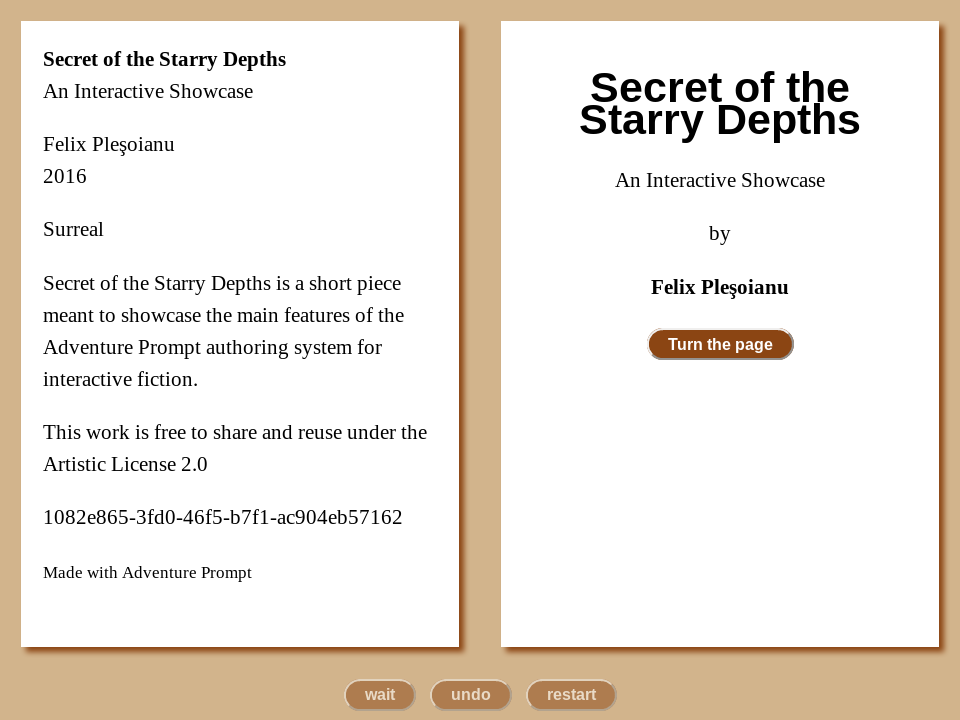Weekly Links #213
Hello, everyone. Work on Adventure Prompt picked up this week, even though I've been sick, not to mention other distractions. I somehow managed to add both actions (an easy feature) and spells (rather more involved). Then, following an important UI change, I also added an optional score breakdown, to fill out the recto page — that's the right-hand pane — in games with few portable objects. Both this and spells have to be enabled in a game's configuration, allowing authors to decide how much they need in order to balance out room descriptions and scenery objects.

In other news, I'm glad to see people familiar with interactive fiction instantly recognize the Detectiveland UI. But nobody seems to have a name for it. It's not CYOA because it has a world model more typical of parser-based games... but it doesn't have a parser to go with it, just explicit options to choose from. And at least Robin Johnson's original game translates button presses to commands for an actual (if hidden) parser. Mine dispenses with that entirely. So what is it?
Anyway, on with the news.
Over on Gamasutra there's a retrospective of StarCraft, that focuses on the way Blizzard's classic revolutionized not just real-time strategy games, but also online play, and basically gave birth to the e-sports scene. Not much that's new, in other words, but a solid write-up peppered with quotes from the original team members. One in particular is especially valuable:
"The development of StarCraft taught me a few things, primarily that long crunches are bad in general. And in the end, extended crunches don't actually get the game out much faster. And another important lesson I learned is: avoid demoing your product to the public before it is ready. No matter what you may say, 'we're 50% complete' or whatever, the public will always judge the game as a finished product," [Collin] Murray says.
Yes, yes they will, and choosing the right moment to show off more than just screenshots can be tricky. But hey, you mean people in the industry already knew crunch time doesn't actually work? And yet they persisted into practices so inhumane they sparked several major scandals? So much for rational behavior.
Over on the intfiction.org forums, the indefatigable Mattbrush posts a history of the Spring Thing, occasioned by the 2018 edition starting out. The Spring Thing, by the way, is the counterpoint to the annual Interactive Fiction Competition, both season-wise and in the way of goals. I hadn't realized just how many famous games were released in the Spring Thing. In fact I could have sworn Bolivia by Night never was in any competition. Oh well, live and learn.
On the other hand, I disagree that the 2009-2010 slump was due to authors "aging out". That's when the interactive fiction community almost strangled itself to death with its own hidebound attitude, rejecting almost out of hand any game that wasn't made with Inform 7 and didn't follow overly strict design guidelines — a recipe for chasing out anyone who just wanted to have some fun. And remember the howls just a few short years later when Twine games started trickling in? Give me a break.
On that note, I'll leave you enjoy the Sunday, and Easter if appropriate. Bye!